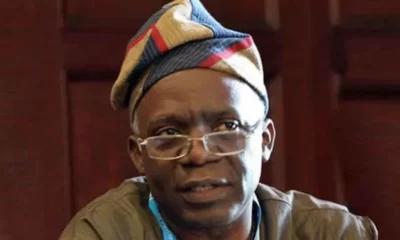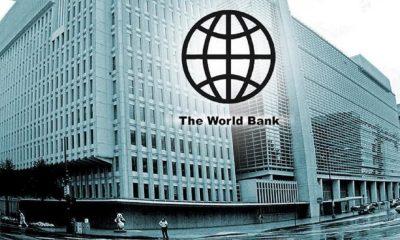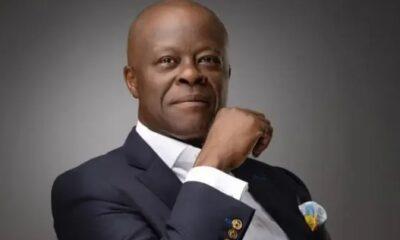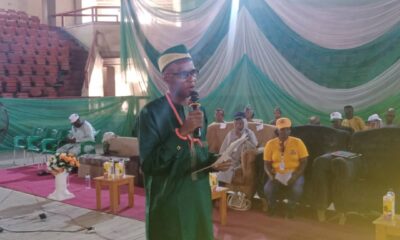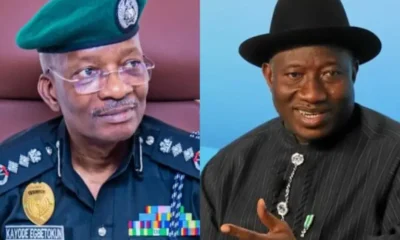Business
World Bank Lists Challenges For Incoming FG, Drops Growth Rate Forecast
Published
1 year agoon
By
Editor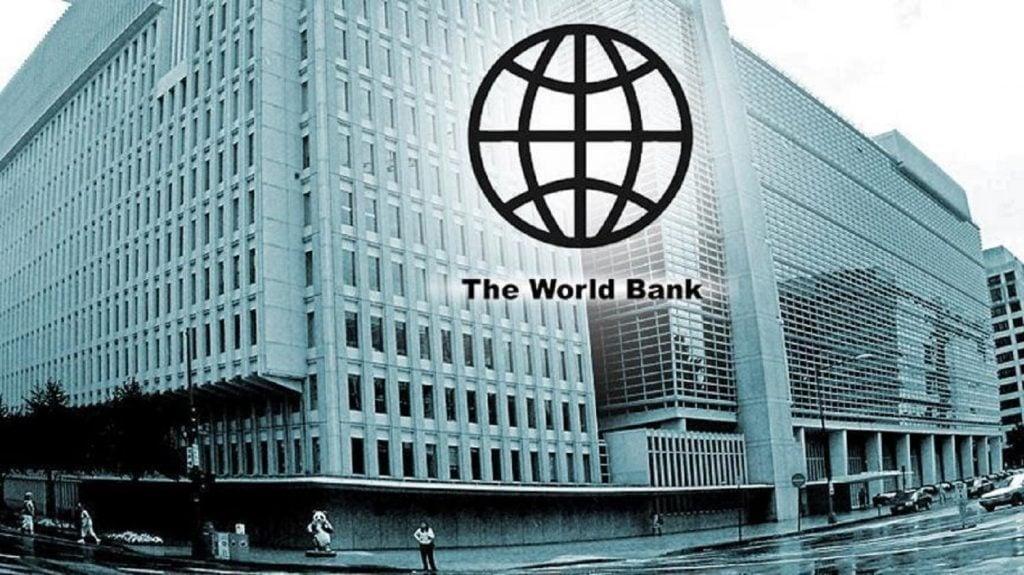
The World Bank Group, WBG, has given a long list of challenges that need to be addressed in the immediate term by the new leadership of the Federal Government.
The WBG President, David Malpass, in a press briefing at the on-going Spring Meetings of the Bretton Woods institutions in Washington D.C., United States of America today, also hinted that economic growth would be subdued during the year with a forecast growth rate of 2.8 percent, a further drop from its earlier forecast of 2.9 percent and also a significant drop from its estimates for 2022 at 3.3 percent.
Malpass stated: “For Nigeria, the growth was 3.3 per cent in 2022 and 2.8 per cent for 2023 is within our forecast, and our high priority in the World Bank is shared prosperity in a sustainable way. And so, as we think about Nigeria, there are many changes that are needed in order to make that happen.
READ ALSO: World Bank Pledges $200m To Repair Ukraine Energy Infrastructure
“Nigeria has a big chunk of its GDP coming from the oil sector and it means that a lot of people in Nigeria are facing poverty due to the global difficulties in the sector as well as Nigeria’s peculiar challenges, and that needs to be a direct focus.
“And they (Nigeria)also face insecurity across the northern regions that are very challenging. And so, the World Bank is working hard within Nigeria but also working to try to have an economic system that can be more productive.
“Nigeria has trade protection that blocks market development; They have a dual exchange rate that is very expensive for the people of Nigeria; They have high inflation and not enough diversification of the economy to really make sufficient progress”.
Speaking on the broader perspective of African economies also affecting Nigeria, Malpass said, “I wanted to give you the context for Nigeria, Egypt, and for other countries where we wish that the true success of the World Bank would be if there can be countries where the people are doing well into the future. And that I think is going to take a substantial change in the world.
READ ALSO: World Bank Names Ajay Banga As Sole Nominee For President
“My hope would be that we can break through on the debt overhang that’s weighing on countries and also break through the structural blockages in so many of the big developing countries where rather than converging and having their growth go up faster than the advanced economies which would be their goal there is a slow down over the decade.
“Showing up like China, developing countries can grow at a 10 percent rate and catch up with advanced economies in a period of years and decades. India is showing that now with 6 percent growth but with the aspiration of 8 per cent per year growth based on policies that will generate faster growth, more electricity, access to clean water, and more investment in agriculture, the things that are needed by the countries.”
VANGUARD
You may like


Nigeria Set To Receive Fresh $2.2bn World Bank Loan – Edun


VIDEO: Reject IMF, World Bank Offers – Falana Cautions FG


Nigeria’s Poverty Reduced By Seven Per Cent – World Bank


99.9% Households Yet To Receive FG’s Cash Transfer – W’Bank


Economic Reforms: Nigerians Under Poverty Line Rise To 104m — World Bank


World Bank Appoints Finance Minister Wale Edun

The Central Bank of Nigeria (CBN) started fresh and direct sales of US dollars at N1,021 per dollar to Bureau De Change operators.
Nigeria’s apex bank disclosed this in a circular signed by its Director of Trade and Exchange Department Hassan Mahmud.
“We write to inform you of the sale of $10,000 by the Central Bank of Nigeria (CBN) to BDCs at the rate of N1,021/$1. The BDCs are in turn to sell to eligible end users at a spread of NOT MORE THAN 1.5 percent above the purchase price,” the circular posted on its website read.
READ ALSO: Tinubu Unveils African Counter-Terrorism Summit
“ALL eligible BDCs are therefore directed to commence payment of the Naira deposit to the underlisted CBN Naira Deposit Account Numbers from today, Monday, April 22, 2024, and submit confirmation of payment, with other necessary documentations, for disbursement of FX at the respective CBN Branches.”
CBN’s move is coming as the naira is recording a slight depreciation against the dollar after weeks of gains.
In late March, the bank also sold $10,000 to each of the eligible Bureau De Change (BDC) operators in the country at the rate of N1,251/$1.
READ ALSO: Mixed Reactions Trail Video Of Couple’s Customised N200 Notes
Like in the most recent sales, it warned BDCs against breaching terms of the dollar sales, vowing to sanction defaulters “including outright suspension from further participation in the sale”.
The fortunes of the naira have fallen sharply since President Bola Tinubu took over in May. Inflation figures have reached new highs and the cost of living hitting the rooftops.
Nigeria’s currency slid to about N1,900/$ some months ago at the parallel market. But in recent weeks, it has gained against the dollar.
The Nigerian authorities have also doubled down on their crackdown against cryptocurrency platform Binance and illegal BDCs.
On March 1, the CBN revoked the licences of 4,173 BDCs over compliance failures.
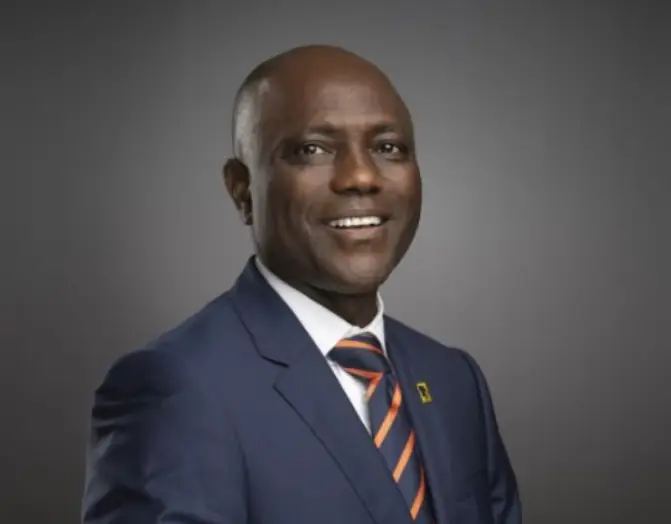
Olusegun Alebiosu has been appointed as the Acting Managing Director/Chief Executive Officer of First Bank of Nigeria Limited (FirstBank Group), effective April 2024.
Alebiosu steps into this pivotal role from his previous position as the Executive Director, Chief Risk Officer, and Executive Compliance Officer, a position he held since January 2022.
Alebiosu brings to the helm of FirstBank over 28 years of extensive experience in the banking and financial services industry. His expertise spans various domains including credit risk management, financial planning and control, corporate and commercial banking, agriculture financing, oil and gas, transportation, and project financing.
READ ALSO: JUST IN: Access Holdings Names New Acting CEO
Having embarked on his professional journey in 1991 with Oceanic Bank Plc. (now EcoBank Plc.), Alebiosu has held several notable positions in esteemed financial institutions.
Prior to joining FirstBank in 2016, he served as Chief Risk Officer at Coronation Merchant Bank Limited, Chief Credit Risk Officer at the African Development Bank Group, and Group Head of Credit Policy & Deputy Chief Credit Risk Officer at United Bank for Africa Plc.
Alebiosu’s academic credentials further enrich his professional profile. He is an alumnus of the Harvard School of Government and holds a Bachelor’s degree in Industrial Relations and Personnel Management. Additionally, he obtained a Master’s degree in International Law and Diplomacy from the University of Lagos, as well as a Master’s degree in Development Studies from the London School of Economics and Political Science.
READ ALSO: Meet Newly Appointed Union Bank CEO
A distinguished member of various professional bodies, including the Institute of Chartered Accountants (FCA), Nigeria Institute of Management (ANIM), and Chartered Institute of Bankers of Nigeria (CIBN), Alebiosu is renowned for his commitment to excellence and ethical practices in the banking sector.
Beyond his professional endeavors, Alebiosu is known for his passion for golf and adventure. He is happily married and a proud parent.
With Alebiosu’s appointment, FirstBank of Nigeria Limited anticipates continued growth and innovation under his leadership, reinforcing its position as a leading financial institution in Nigeria and beyond.
Business
CBN Gives New Directive On Lending In Real Estate
Published
1 week agoon
April 17, 2024By
Editor
The Central Bank of Nigeria, CBN, has released a new regulatory directive to enhance lending to the real sector of the Nigerian economy.
The directive, issued on April 17, 2024, with reference number BSD/DIR/PUB/LAB/017/005 and signed by the Acting Director of Banking Supervision, Adetona Adedeji, signifies a notable shift in the bank’s policy towards a more contractionary approach.
In line with the new measures, the CBN has reduced the loan-to-deposit ratio by 15 percentage points, down to 50 per cent.
This move aligns with the CBN’s current monetary tightening policies and reflects the increase in the Cash Reserve ratio rate for banks.
READ ALSO: JUST IN: CBN Gov Sacks Eight Directors, 32 Others
The LDR is a metric used to evaluate a bank’s liquidity by comparing its total loans to its total deposits over the same period, expressed as a percentage.
An excessively high ratio may indicate insufficient liquidity to meet unexpected fund requirements.
All Deposit Money Banks are now mandated to adhere to this revised LDR.
The CBN has stated that average daily figures will be utilised to gauge compliance with this directive.
Furthermore, while DMBs are encouraged to maintain robust risk management practices in their lending activities, the CBN has committed to continuous monitoring of adherence and will adjust the LDR as necessary based on market developments.
READ ALSO: JUST IN: CBN Increases Interest Rate To 24.75%
Adedeji has called on all banks to acknowledge these modifications and adjust their operations accordingly. He emphasised that this regulatory adjustment is anticipated to significantly influence the banking sector and the wider Nigerian economy.
The circular read in part, “Following a shift in the Bank’s policy stance towards a more contractionary approach, it is crucial to revise the loan-to-deposit ratio policy to conform with the CBN’s ongoing monetary tightening.
“Consequently, the CBN has decided to decrease the LDR by 15 percentage points to 50 per cent, proportionate to the rise in the CRR rate for banks.
“All DMBs must maintain this level, and it is advised that average daily figures will still be applied for compliance assessment.
“While DMBs are urged to sustain strong risk management practices concerning their lending operations, the CBN will persist in monitoring compliance, reviewing market developments, and making necessary adjustments to the LDR. Please be guided accordingly.”

JUST IN: Four-year-old Boy Dies In Abuja School, Parents Suspect Foul Play
JUST IN: 118 Inmates Escape As Rainstorm Destroys Niger Prison

JUST IN: Flights Diverted As Fire Breaks Out At Lagos Airport
Trending

 Entertainment3 days ago
Entertainment3 days agoBridesmaids’ Dance At Wedding Causes Stir On Social Media [VIDEO/PHOTOS]

 Politics4 days ago
Politics4 days agoEdo Guber: Akoko-Edo PDP Leaders Meet In Igara, Describe Ighodalo, Ogie As ‘Perfect Match’

 News5 days ago
News5 days agoFoundation Advocates Empowerment Of Women, Youth In Nigeria

 Metro3 days ago
Metro3 days agoVIDEO: ‘UNN Lecturer’ Caught Pants Down With Married Student

 News4 days ago
News4 days agoOutrage As Chinese Supermarket In Abuja Denies Nigerians Entry

 News5 days ago
News5 days agoJapa: Types Of US Visa Available To Nigerians, Other Foreigners

 News3 days ago
News3 days agoIGP, Jonathan Disagree Over State Police

 News5 days ago
News5 days agoJUST IN: Ondo Poll: Violence Breaks Out At APC Primary In Okitipupa

 News2 days ago
News2 days agoBREAKING: Dangote Further Crashes Diesel, Aviation Fuel Price

 Entertainment3 days ago
Entertainment3 days ago“Got To f*** k The President’s Wife” – Kanye West Wishes Threesome With Michelle Obama[VIDEO]


